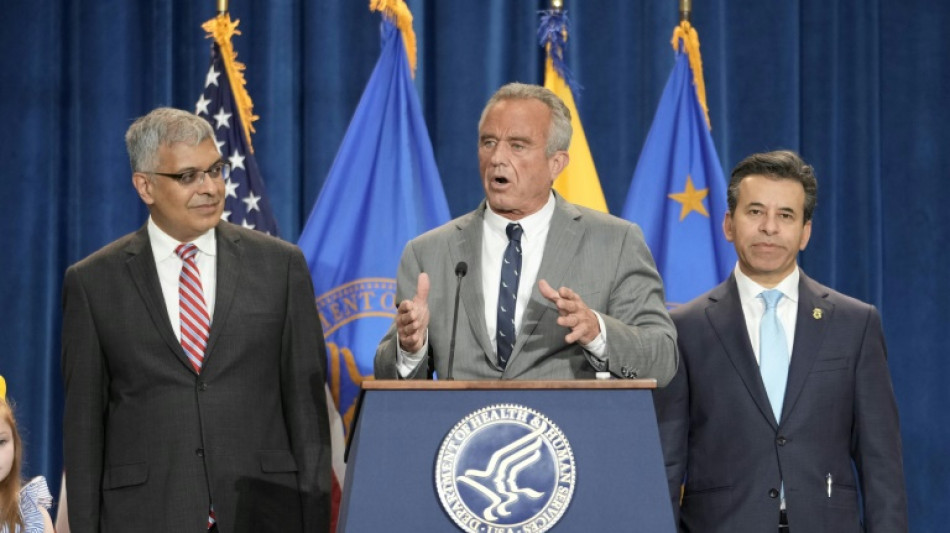
-
 Iran orders talks with US as Trump warns of 'bad things' if no deal reached
Iran orders talks with US as Trump warns of 'bad things' if no deal reached
-
From 'watch his ass' to White House talks for Trump and Petro

-
 Liverpool seal Jacquet deal, Palace sign Strand Larsen on deadline day
Liverpool seal Jacquet deal, Palace sign Strand Larsen on deadline day
-
Trump says not 'ripping' down Kennedy Center -- much

-
 Sunderland rout 'childish' Burnley
Sunderland rout 'childish' Burnley
-
Musk merges xAI into SpaceX in bid to build space data centers
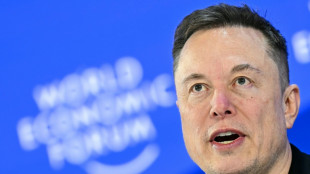
-
 Former France striker Benzema switches Saudi clubs
Former France striker Benzema switches Saudi clubs
-
Sunderland rout hapless Burnley

-
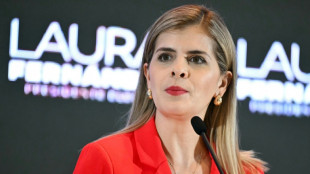 Costa Rican president-elect looks to Bukele for help against crime
Costa Rican president-elect looks to Bukele for help against crime
-
Hosts Australia to open Rugby World Cup against Hong Kong

-
 New York records 13 cold-related deaths since late January
New York records 13 cold-related deaths since late January
-
In post-Maduro Venezuela, pro- and anti-government workers march for better pay

-
 Romero slams 'disgraceful' Spurs squad depth
Romero slams 'disgraceful' Spurs squad depth
-
Trump urges 'no changes' to bill to end shutdown
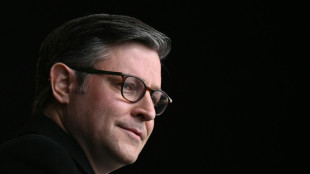
-
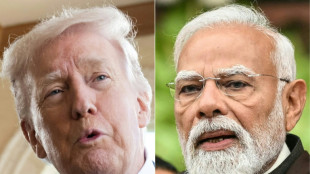 Trump says India, US strike trade deal
Trump says India, US strike trade deal
-
Cuban tourism in crisis; visitors repelled by fuel, power shortages

-
 Liverpool set for Jacquet deal, Palace sign Strand Larsen on deadline day
Liverpool set for Jacquet deal, Palace sign Strand Larsen on deadline day
-
FIFA president Infantino defends giving peace prize to Trump
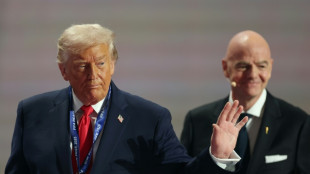
-
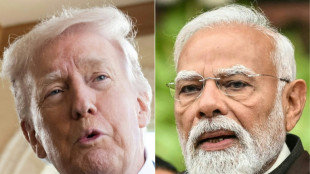 Trump cuts India tariffs, says Modi will stop buying Russian oil
Trump cuts India tariffs, says Modi will stop buying Russian oil
-
Borthwick backs Itoje to get 'big roar' off the bench against Wales

-
 Twenty-one friends from Belgian village win €123mn jackpot
Twenty-one friends from Belgian village win €123mn jackpot
-
Mateta move to Milan scuppered by medical concerns: source

-
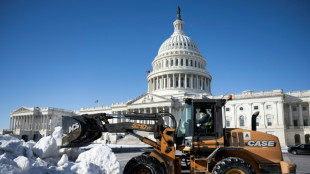 Late-January US snowstorm wasn't historically exceptional: NOAA
Late-January US snowstorm wasn't historically exceptional: NOAA
-
Punctuality at Germany's crisis-hit railway slumps

-
 Gazans begin crossing to Egypt for treatment after partial Rafah reopening
Gazans begin crossing to Egypt for treatment after partial Rafah reopening
-
Halt to MSF work will be 'catastrophic' for people of Gaza: MSF chief

-
 Italian biathlete Passler suspended after pre-Olympics doping test
Italian biathlete Passler suspended after pre-Olympics doping test
-
Europe observatory hails plan to abandon light-polluting Chile project

-
 Iran president orders talks with US as Trump hopeful of deal
Iran president orders talks with US as Trump hopeful of deal
-
Uncertainty grows over when US budget showdown will end
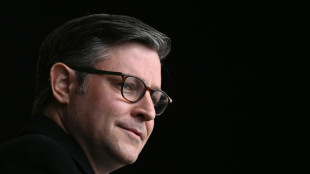
-
 Oil slides, gold loses lustre as Iran threat recedes
Oil slides, gold loses lustre as Iran threat recedes
-
Russian captain found guilty in fatal North Sea crash

-
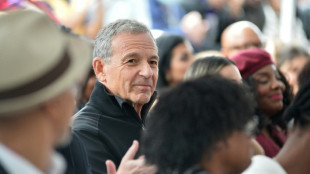 Disney earnings boosted by theme parks, as CEO handover nears
Disney earnings boosted by theme parks, as CEO handover nears
-
Sri Lanka drop Test captain De Silva from T20 World Cup squad

-
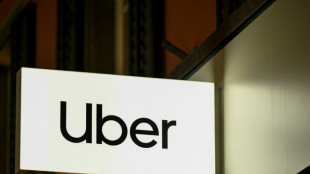 France demands 1.7 bn euros in payroll taxes from Uber: media report
France demands 1.7 bn euros in payroll taxes from Uber: media report
-
EU will struggle to secure key raw materials supply, warns report

-
 France poised to adopt 2026 budget after months of tense talks
France poised to adopt 2026 budget after months of tense talks
-
Latest Epstein file dump rocks UK royals, politics

-
 Arteta seeks Arsenal reinforcement for injured Merino
Arteta seeks Arsenal reinforcement for injured Merino
-
Russia uses sport to 'whitewash' its aggression, says Ukraine minister
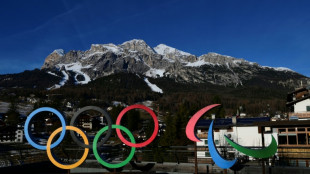
-
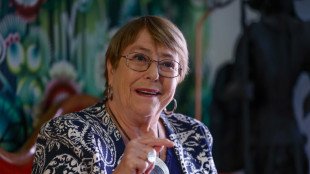 Chile officially backs Bachelet candidacy for UN top job
Chile officially backs Bachelet candidacy for UN top job
-
European stocks rise as oil tumbles, while tech worries weigh on New York

-
 England captain Itoje on bench for Six Nations opener against Wales
England captain Itoje on bench for Six Nations opener against Wales
-
Rahm says golfers should be 'free' to play where they want after LIV defections

-
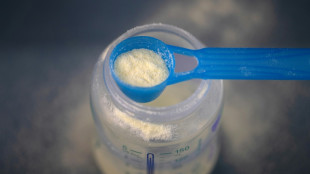 More baby milk recalls in France after new toxin rules
More baby milk recalls in France after new toxin rules
-
Rosenior will not rush Estevao return from Brazil

-
 Mercedes ready to win F1 world title, says Russell
Mercedes ready to win F1 world title, says Russell
-
Germany hit by nationwide public transport strike

-
 Barca coach Flick 'not happy' with Raphinha thigh strain
Barca coach Flick 'not happy' with Raphinha thigh strain
-
WHO chief says turmoil creates chance for reset
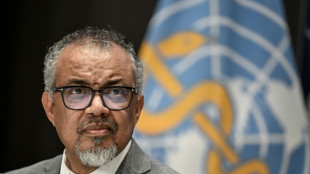

Trump's administration moves to scrap artificial food dyes
President Donald Trump's administration on Tuesday announced plans to remove synthetic dyes from the US food supply, marking a rare point of bipartisan convergence in an otherwise sharply divided political climate.
Health Secretary Robert F Kennedy Jr. has vowed to overhaul America's food system under the banner of his "Make America Healthy Again" (MAHA) agenda, and the push would phase out the eight approved artificial food dyes by the end of 2026.
It builds upon a prohibition on Red Dye 3 by the government of former president Joe Biden but accelerates the timeline and also calls on the National Institutes of Health to carry out comprehensive research on how additives impact children's development.
"For the last 50 years, American children have increasingly been living in a toxic soup of synthetic chemicals," Food and Drug Administration commissioner Marty Makary said at a news conference, surrounded by young families and MAHA supporters.
He cited studies linking synthetic dyes to conditions including attention deficit hyperactivity disorder (ADHD), diabetes, cancer, genomic disruption, gastrointestinal issues and more.
Kennedy, for his part, called the issue of dyes and additives more generally an "existential" threat.
"When my uncle was president in the 1960s, we had the healthiest people in the world -- and one of the basic assumptions of our country was that because we were robust people... that was responsible for our country being the land of the brave and the home of the free," he said.
Of the eight synthetic dyes derived from petroleum, Yellow 5, Yellow 6 and Red 40 make up the lion's share of those in use, Peter Lurie, president and executive director of the nonprofit Center for Science in the Public Interest, told AFP.
They are found in a range of products, from beverages and candies to cereals, sauces and dairy products.
Under the new plan, the FDA would revoke authorization for two of the eight dyes, while relying on the food industry to voluntarily eliminate the other six, but Kennedy said they have been receptive in talks.
"None of them convey anything of any nutritional significance, and what they're really there for is to mislead -- to make food appear somehow redder, somehow bluer, somehow fruitier or more attractive than it is," said Lurie.
"And the purpose of all that is to drive up sales, it's not anything that benefits the American public."
- Bipartisan momentum -
Momentum has been building at the state level. In March, Republican-leaning West Virginia enacted a broad ban on synthetic dyes, following California's 2024 decision to restrict them in public schools.
While Red Dye 3 was previously targeted for phaseout in foods and drugs by 2027 and 2028 respectively due to cancer concerns, the remaining dyes have been linked to behavioral issues such as attention deficit disorder in children.
In Europe, these dyes are not banned outright -- but the requirement to carry warning labels has led many companies to switch to natural alternatives.
Kennedy's stance puts him in rare alignment with mainstream scientific consensus -- a shift from his controversial record of promoting vaccine misinformation, downplaying the country's worst measles outbreak in years, and suggesting bird flu should be allowed to spread naturally among poultry.
Still, opposition from the food industry may yet surface. Manufacturers have long resisted tighter regulations, though Kennedy insisted they are ready to adapt.
"They want clear guidelines, they want to know what they can and can't do, and we're going to give them that," he said.
Lurie remained skeptical.
"All I know is that industry wasn't up there on the podium," he said. "If they were so clearly on board, you have to ask yourself why they weren't there."
F.Müller--BTB




